The war against Ukraine: one year on
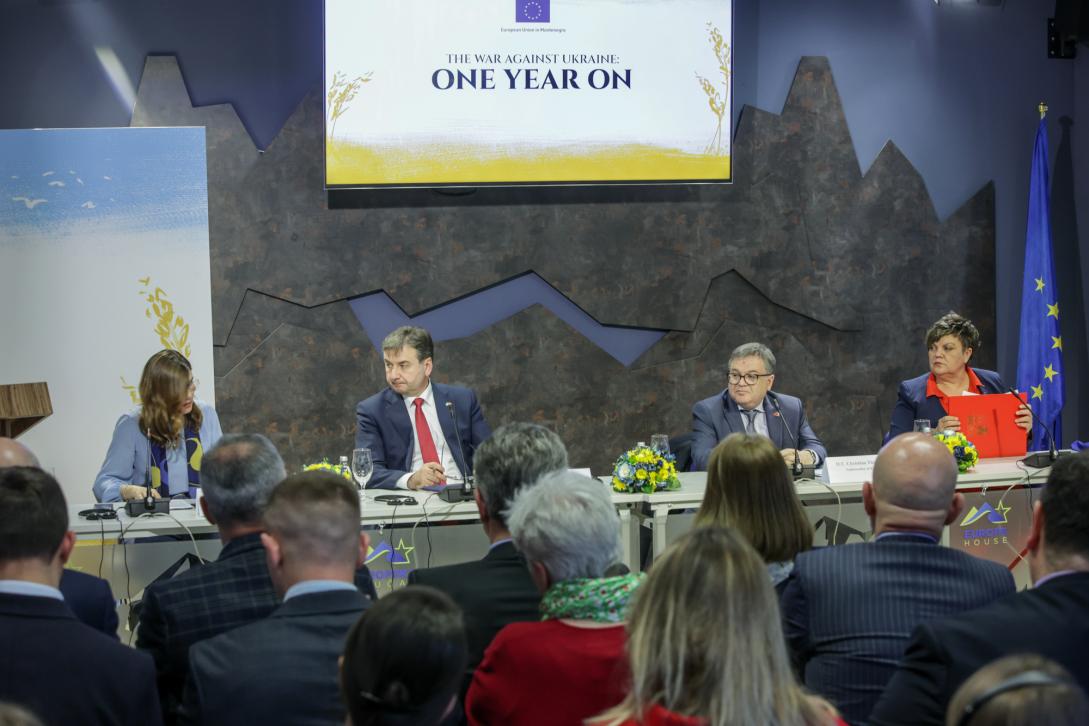
A year has passed since the start of the brutal Russian aggression against Ukraine and the tragedy of the Ukrainian people. The unprovoked Russian invasion is an example of a flagrant violation of international law and the Charter of the United Nations and this was the message sent from the panel discussion "War against Ukraine: one year on", organized by the Delegation of the European Union in the Europe House.
Addressing the gathered ambassadors and guests at the panel, the Ambassador of the European Union to Montenegro, Oana Cristina Popa, said that the panel itself was an opportunity to express the European Union's solidarity and support for the territorial integrity of Ukraine, noting that the European Union from the very beginning of the aggression "appealed to Russia to stop this horrible war".
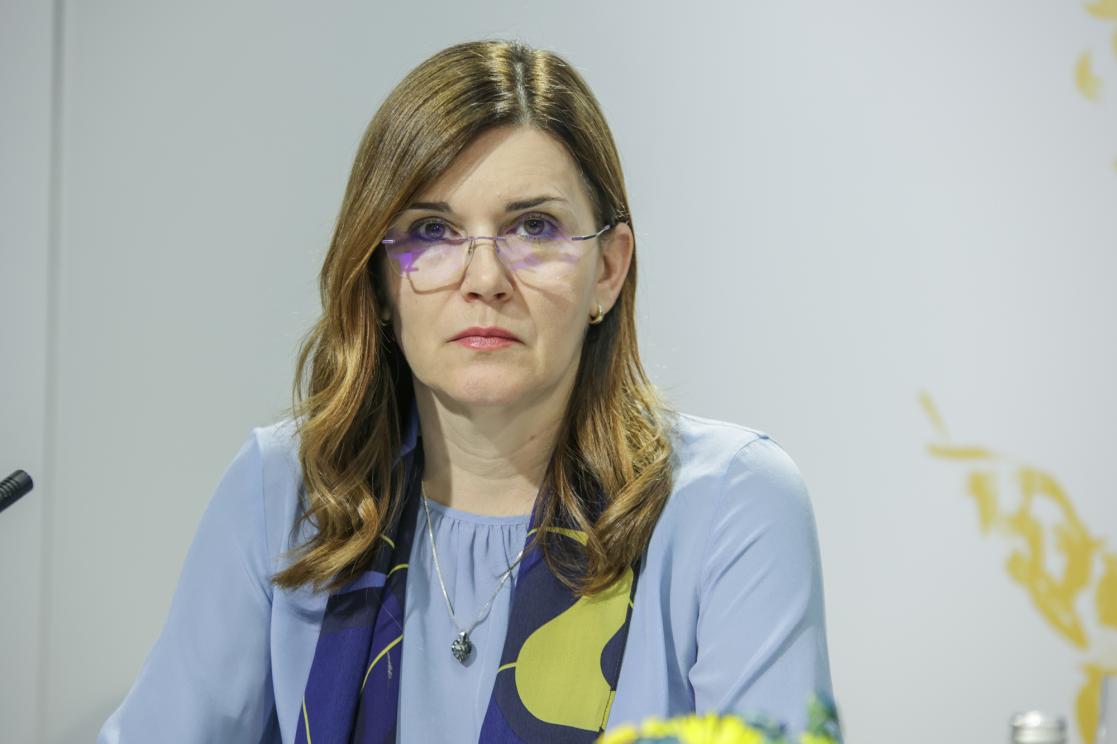
“As the President of the European Commission Von der Leyen has repeated many times, the EU will stand by Ukraine, providing it with unwavering support for as long as necessary. Our collective goal is for a democratic Ukraine to prevail and regain its full sovereignty. Ukraine has shown remarkable resilience, thanks in part to our support. Russia has become more isolated thanks to global sanctions and the international condemnation of the vast majority of countries at the UN General Assembly," said Popa.
Along with the EU Ambassador, the ambassadors of the member countries that presided over the Council of the European Union since the beginning of the war also spoke on the panel. The Ambassador of the Republic of France to Montenegro Christian Thimonier reflected on the French presidency and the changes in French foreign policy brought about by Russia's war against Ukraine. He said that France stands firmly with its allies in supporting Ukraine in defence of common values. Thimonier quoted the Ukrainian general Kyrylo Budanov, director of the Ukrainian intelligence service, who said: "The question of the future political and security architecture of the region that stretches from Eastern Europe to the Asian part of Russia will be raised.”
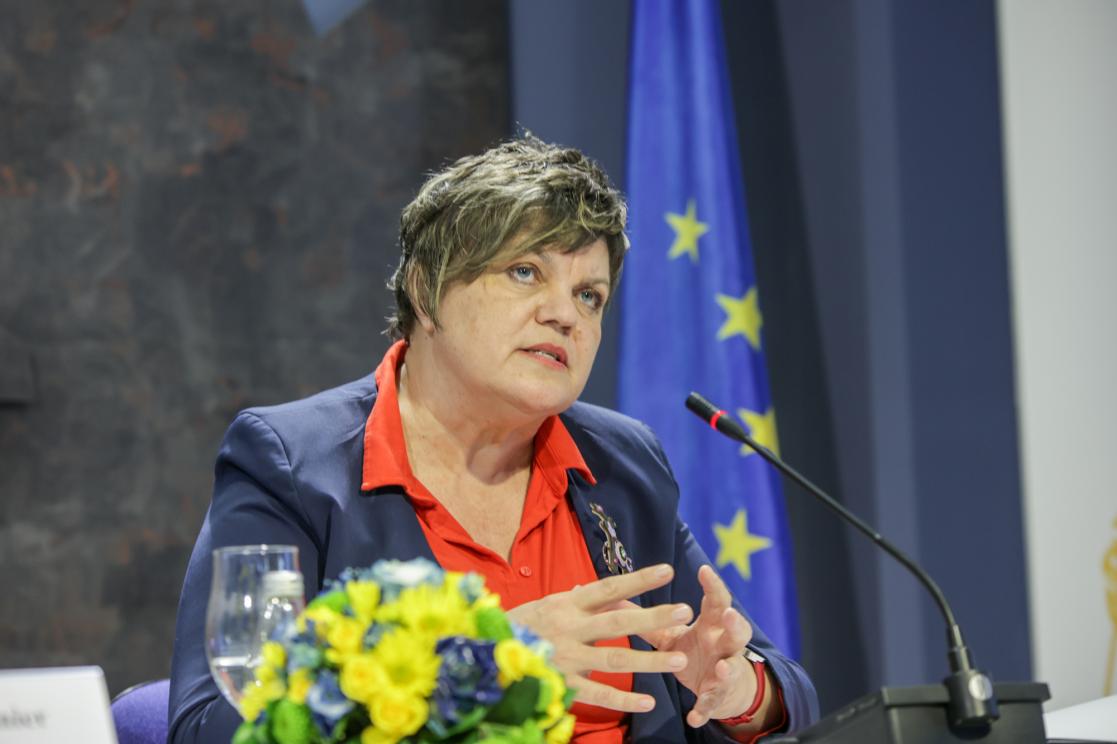
By helping Ukraine, we prove that we share the common values of humanity, said the Ambassador of the Czech Republic Janina Hřebíčková, adding that "we see Russian aggression against Ukraine as aggression against NATO, the EU and Western democratic values."
“We have never come to terms with the words of the Russian president (Vladimir Putin), who called for a roll back of the Alliance’s military capability and infrastructure in Europe to where they were in 1997, practically calling for a revision of the security structure in Europe where former Eastern Bloc states would become more vulnerable to future Russian aggression," said Hřebíčková.
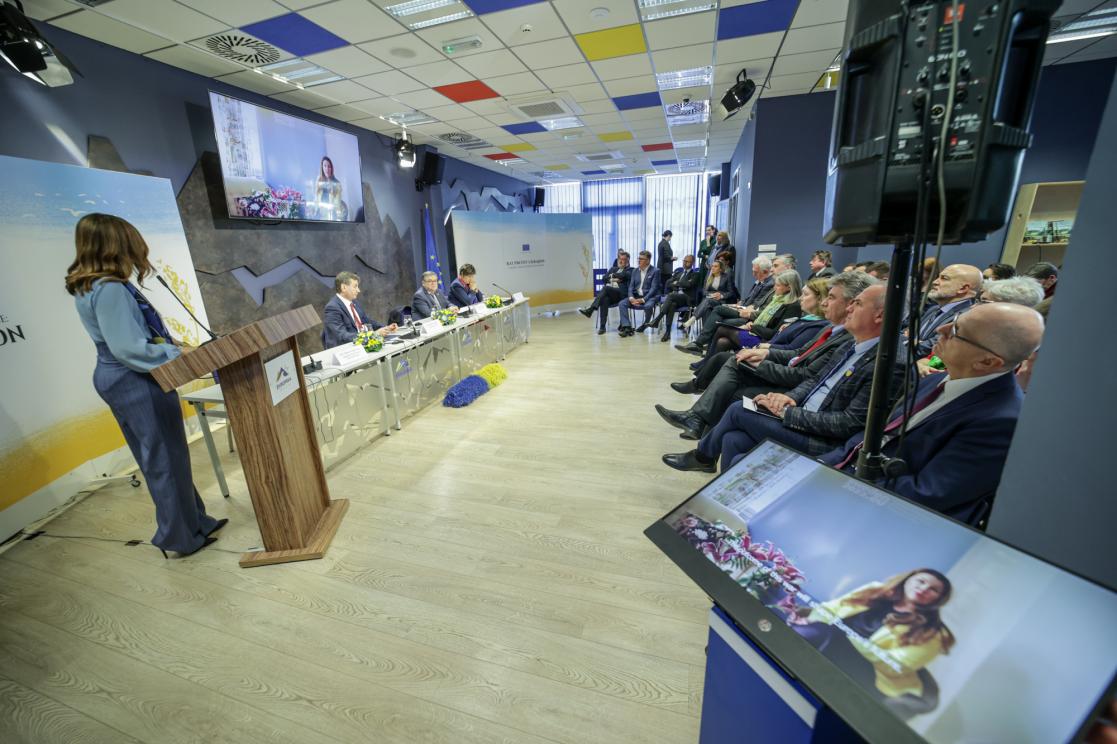
Ambassador of Sweden, which currently presides over the Council of the European Union, Annika Ben David, said in a video message to the panellists that "the outcome of this war will shape the future of Europe." As Ambassador Ben David said, Ukraine must win, otherwise it would mean the invasion of one country against another and undermining the rules-based international order pays off. Then it can be done elsewhere, or by others.
“As Russia's war of aggression against Ukraine is putting European and global peace and security at risk, the EU also recognises the importance of the strategic partnership between the EU and the Western Balkans region. The EU and its Member States are fully and unequivocally committed to the European Union membership perspective of the Western Balkans,” the Swedish Ambassador concluded.
The Ambassador of Ukraine to Montenegro, Oleh Herasymenko, said that the consequences of Russian aggression against Ukraine are multiple and that they have left deep scars on his people and his country.
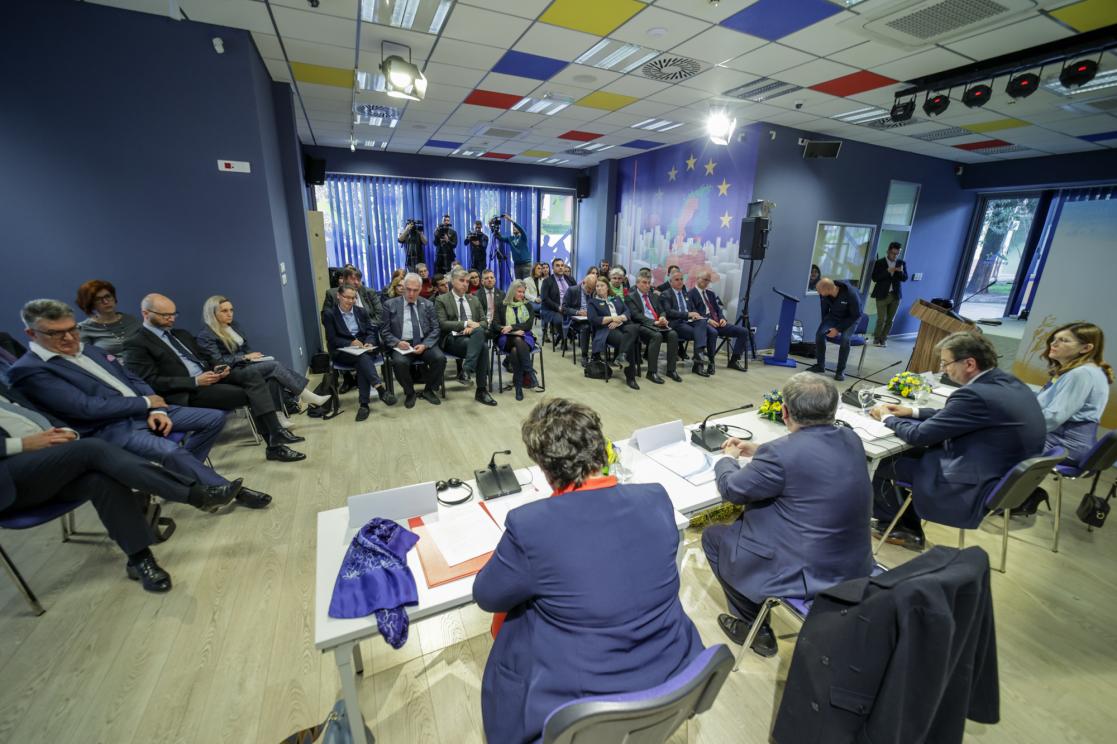
“In its neo-imperialist attempt to remake the world order, to redraw state borders on the European continent and to carve out for itself an exclusive zone of interest and domination, Russia irrevocably destroyed what remained of the European security architecture, with the single aim – to destroy the Ukrainian nation and its statehood, to erase the Ukrainian identity. One year on, it is clear that Russia has made a fatal mistake, and we see how miserably Russia has failed in all its objectives," Herasymenko said.
Concluding the official part of the panel, the Ambassador of the European Union to Montenegro, Oana Cristina Popa, recalled the sufferings of the Ukrainian people and the help that the Union provided during the first year of the Russian aggression. Four million Ukrainians who fled the horrors of war found refuge in the countries of the European Union, of which over 1.5 million in Poland alone. In addition to ten packages of sanctions that target the Russian economy by aiming its economic base for waging war, the European Union and its member states have made available around 67 billion euros in support of Ukraine and its people. 37.8 billion euros are dedicated to economic aid, 17 billion euros to support refugees in the EU and 12 billion euros to military support.
The EU established so-called solidarity lines that allowed 45 million tons of goods to be exported from Ukraine, such as 23 million tons of grain and related goods worth 20 billion euros in revenue. The EU donated 1.7 billion euros in humanitarian aid to help civilians affected by the war and 535 million euros in aid under the EU Civil Protection Mechanism.
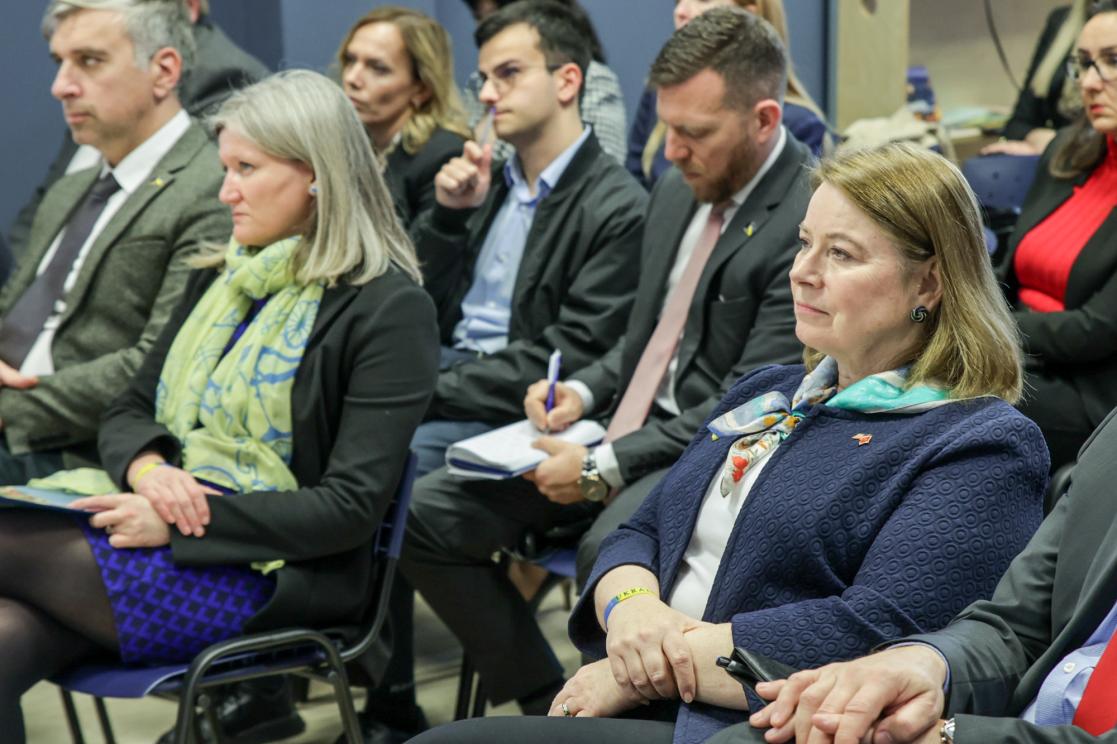
Ambassador Popa also welcomed the efforts made by Montenegro in this regard, stating that more than 93,000 Ukrainian citizens entered the country in the past year. As of February 13, 2023, there are 33,739 refugees from Ukraine who have registered some form of residence in Montenegro. This represents over 5% of the population, which means that according to its capacities, Montenegro is among the first in the world when it comes to the number refugees from Ukraine per capita.
The panel was attended by the ambassadors of the EU member states accredited in Montenegro, the ambassadors of the countries of the region, as well as the ambassadors of the United Kingdom and the United States of America, Karen Maddocks and Judy Rising Reinke.





